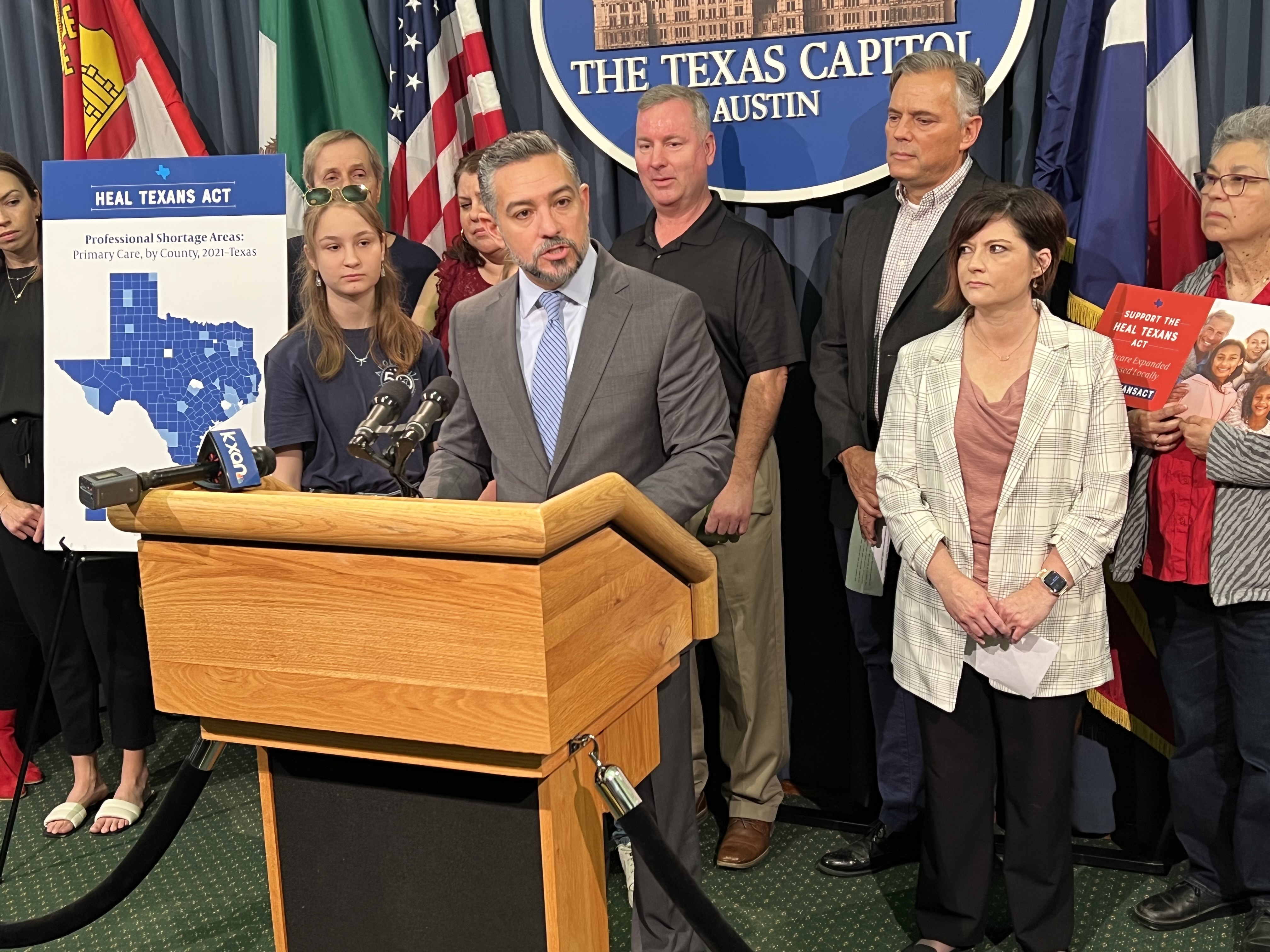AARP Hearing Center
AUSTIN, Texas -- With Texas facing a healthcare access crisis due to a worsening physician shortage, especially in rural and other underserved areas, state Sen. Cesar Blanco (D-El Paso) today filed Senate Bill 1700, the Healthcare Expanded & Accessed Locally (HEAL Texans) Act. The bill expands health access by allowing full practice authority for nurse practitioners.
At a press conference in the Texas Capitol to announce the bill, Blanco told reporters that nurse practitioners – also known as Advanced Practice Registered Nurses (APRNs) -- currently comprise almost half of the primary care workforce in Texas and can help expand healthcare access and options for Texans close to their home.
“When I travel across the district, the lack of healthcare access locally is the number one concern I hear the most about,” Blanco said. “Every single county I represent is a primary care health profession shortage area…When I talk to my senior citizens, they often say: `West Texas is a great place to retire, but a bad place to grow old.’”
APRNs have graduate-level degrees, hundreds of hours of clinical training and practice primary care at a far greater rate than physicians, Blanco said. They are hamstrung, though, by outdated occupational licensing laws and delegation requirements.

APRNs authority to deliver care in Texas to the extent they are professionally trained is hindered by delegation barriers that require APRNs only practice under the authority of a licensed physician.
Twenty-six states have released nurse practitioners from the administratively and financially burdensome requirements of physician delegation authority, and none have returned to the limited practice model.
Rob Schneider of Austin, a volunteer for AARP who serves on the AARP Texas Executive Council, also spoke at the press conference, and said that with 3.7 million Texans age 65 and older, and the number of older Texans growing, there is a sharp demand for all types of health services.
“As crucial as access to health care is for older Texans, too often we face the difficult realities of a strained healthcare system, which can be a particular problem in rural Texas,” Schneider said.
He added: “Too many people have long and potentially dangerous wait times for primary care, including mental health services. The HEAL Texans Act is a safe and smart solution that will help ensure older Texans can find the primary care they need in their communities.”































































